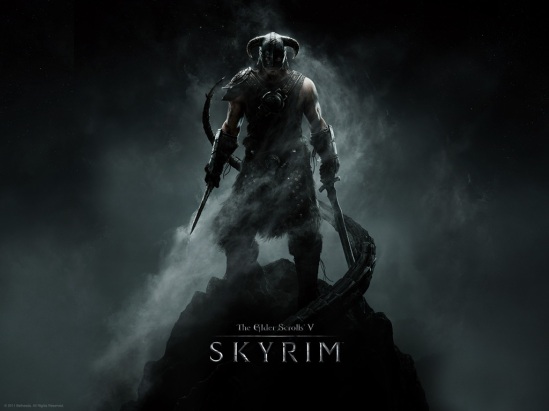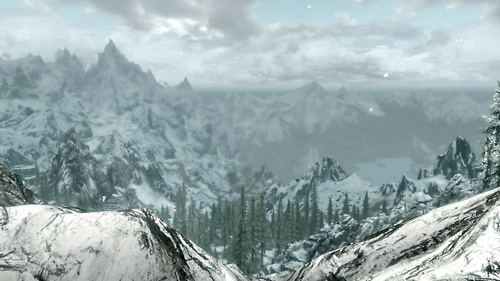Science fiction and Fantasy (and we may as well take a leaf from the booksellers and lump Horror in with them as well) have always been seen as a lesser cousin to ‘proper’ literary fiction. Many articles have been written on the subject and many words thrown into the arena.
So why am I bothering to add my own?
Well, it’s simple. I’m a fan and an aspiring writer of so-called ‘genre’ fiction, and I therefore feel the need to defend my chosen form of escapism.
Last year the BBC hosted its World Book Night, a celebration of the written word, with copies of 25 titles to be handed out to thousands of people. A noble intention that I am sure none of us would take issue with. This was their choice of titles:
Kate Atkinson – Case Histories
Margaret Atwood – The Blind Assassin
Alan Bennett – A Life Like Other People’s
John le Carré – The Spy Who Came in From the Cold
Lee Child – Killing Floor
Carol Ann Duffy – The World’s Wife
Mark Haddon – The Curious Incident of the Dog in the Night-Time
Seamus Heaney – Selected Poems
Marian Keyes – Rachel’s Holiday
Mohsin Hamid – The Reluctant Fundamentalist
Ben Macintyre – Agent Zigzag
Gabriel García Márquez – Love in the Time of Cholera
Yann Martel – Life of Pi
Alexander Masters – Stuart: A Life Backwards
Rohinton Mistry – A Fine Balance
David Mitchell – Cloud Atlas
Toni Morrison – Beloved
Chimamanda Ngozi Adichie – Half of a Yellow Sun
David Nicholls – One Day
Philip Pullman – Northern Lights
Erich Maria Remarque – All Quiet on the Western Front
CJ Sansom – Dissolution
Nigel Slater – Toast
Muriel Spark – The Prime of Miss Jean Brodie
Sarah Waters – Fingersmith
These titles are, no doubt, all exceedingly well written and worthy. But are they representative of the type of books that people actually read? Or is it an elitist list, designed to tell us what we should be reading? Is it descriptive or prescriptive? Only two of these titles (Cloud Atlas and Northern Lights) could be classed as Science Fiction or Fantasy, and Cloud Atlas is more of a philosophical journey and literary exercise than a true SF novel. But a glance through the best selling lists for last year will throw up names like Stephanie Meyer, George RR Martin, Terry Pratchett, JK Rowling and so on. Statistically, the ‘genre’ fiction market represents far more than 8% of book sales. So why isn’t this represented?
Fantasy author Stephen Hunt, along with 85 other authors, wrote an open letter to the BBC complaining about the ‘sneering derogatory tone’ adopted towards genre fiction. The BBCs reaction? Fairly predictable. Read it (and Stephen Hunt’s well informed rant, at http://www.sfcrowsnest.com/articles/news/2011/One-Genre-to-bring-them-all-and-in-the-darkness-bind-them-15938.php
Margaret Atwood would, possibly, disagree with the sentiments expressed by Stephen Hunt et al, if the oft-repeated comments about The Handmaid’s Tale and Oryx and Crake are to be believed. She is repeatedly quoted as having denied writing science fiction (calling it “spaceships and monsters”), preferring instead the sobriquet ‘speculative fiction’. It is usually suggested that she was refusing to be classified as a Sci-Fi author in case it damaged her standing as a serious writer, but she has since claimed that she uses the terms speculative fiction and social science-fiction to differentiate her work from those stories that contain “things we can’t yet do”. Well, she won the Arthur C Clarke Award for The Handmaid’s Tale. Read it and decide for yourself. In my opinion, it is science-fiction, similar in some ways to Nineteen Eighty-Four or Brave New World. Just not as good. And more than a little preachy…
So what is it about SF&F (and Horror) that eludes mainstream appeal? When you consider that some of the high points of the genre in over the last few hundred years are so well-known that they have become part of the English language and are firmly embedded in popular culture, it seems doubly strange that an interest in or affection for SF&F(&H) is still seen as an adolescent fascination at best, just plain weird at worst. Think about Dracula, Frankenstein, Nineteen Eighty-Four, Brave New World, War of the Worlds, 20,000 Leagues Under The Sea and so many others. Think about the way that SF&F has embraced the new technologies – early genre films include the classics Nosferatu, Metropolis, and the early short A Man In The Moon. SF&F films today include some of the highest earning films in history. According to Wikipedia (and therefore probably wrong) eight of the top ten grossing movies in history belong within the SF&F genre bracket (assuming we accept the Pirates of the Caribbean franchise into that group).
I would like to think that the majority of people enjoy the genre, and could class themselves as fans but choose not to. Why is that? Well, let’s be honest, SF&F fans have a certain…reputation, don’t they?
I know! I’m treading on thin ice a little, but hey! I’m a fan too! These are my people I’m insulting here. But it’s true. Fanboys (and they are mostly male) take ‘weird’ to a whole new level. They redefine what it is to be a social outcast and have suffered for it. Of course, some of them kind of deserve that suffering…

Spandex: it's a privilege, not a right!
These days, being a fan is slowly losing its pejorative status due to the commercial success of a raft of Marvel and DC comic characters, but for a grown man to admit any more than a casual knowledge of comic-dom is still akin to admitting a bizarre sexual fantasy. In fact, I suspect more men would prefer to admit a penchant for being buggered than admit that they know why Issue #38 of Detective Comics is important (answers on a postcard!).
OK, maybe that’s an exaggeration. But people will happily sit for two hours, watching a bloke in spandex fight bad guys on rooftops, yet still claim that comic books are for kids. Obviously, these people should be forced at gunpoint to read Watchmen but that may be a rant for another day.
Some of the earliest stories ever written down are fantasy. Myths, legends, religions and other fairy tales (I know, that was a cheap shot) all rely on the frankly unbelievable for their appeal. The Scandinavian Sagas are the precursors of The Lord of the Rings. And what is Superman but a retelling of the Jesus story? Only with more laser death beams than the original, obviously.
Let’s be honest – the human race is moved forward by those individuals who are capable of seeing what doesn’t exist and making the dream a reality. We need these people. Without the nerds and geeks, our computers wouldn’t work. There would be no internet, no space program, no mobile phones. We would still be sitting in caves, eating raw meat and dying at twenty of toothache.
So let us work together, ladies and gentlemen, to usher in a new dawn. A world where genre fiction is celebrated as the true saviour of the human race. A world where you can wear your Starfleet Academy uniform to the pub and not be kicked in the beer garden. A world in which all things are possible.
Even if they aren’t plausible.
 So, my current project is a series of short Steampunk stories featuring a group of adventurous types led by an inventor/academic who has had a ‘device’ stolen by a group of Prussian mercenaries. The group is going to investigate… and so far, so predictable. I need to develop the idea in new and interesting ways, unfortunately I have no idea which direction to take! I would like to use this blog as a way to bounce ideas off people but I obviously don’t want other people to write it for me! So, any ideas that people feel happy offering would be gratefully received!
So, my current project is a series of short Steampunk stories featuring a group of adventurous types led by an inventor/academic who has had a ‘device’ stolen by a group of Prussian mercenaries. The group is going to investigate… and so far, so predictable. I need to develop the idea in new and interesting ways, unfortunately I have no idea which direction to take! I would like to use this blog as a way to bounce ideas off people but I obviously don’t want other people to write it for me! So, any ideas that people feel happy offering would be gratefully received! So, my current project is a series of short Steampunk stories featuring a group of adventurous types led by an inventor/academic who has had a ‘device’ stolen by a group of Prussian mercenaries. The group is going to investigate… and so far, so predictable. I need to develop the idea in new and interesting ways, unfortunately I have no idea which direction to take! I would like to use this blog as a way to bounce ideas off people but I obviously don’t want other people to write it for me! So, any ideas that people feel happy offering would be gratefully received!
So, my current project is a series of short Steampunk stories featuring a group of adventurous types led by an inventor/academic who has had a ‘device’ stolen by a group of Prussian mercenaries. The group is going to investigate… and so far, so predictable. I need to develop the idea in new and interesting ways, unfortunately I have no idea which direction to take! I would like to use this blog as a way to bounce ideas off people but I obviously don’t want other people to write it for me! So, any ideas that people feel happy offering would be gratefully received!





